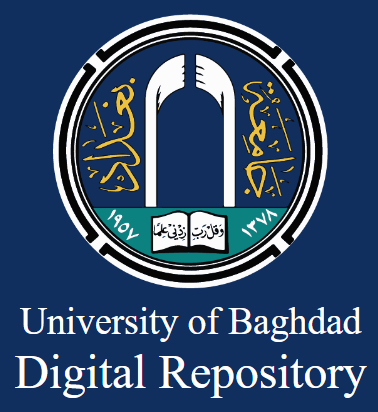القدرات الموسيقية وعلاقتها بالتسامح
DOI:
https://doi.org/10.35560/jcofarts107/331-344الكلمات المفتاحية:
القدرات الموسيقية، التسامح، الموهوبين فنياالملخص
- هدفت هذه الدراسة إلى الكشف عن القدرات الموسيقية و تعرف علاقتها بالتسامح ، اعتمدت الدراسة المنهج الوصفي التحليلي باسلوب الارتباط ، وقد تكونت عينة الدراسة من (65) طالبة من طالبات مدرسة ميسلون الاساسية للبنات التابعة لمديرية التربية والتعليم للواء بني عبيد في محافظة اربد/ الاردن تم اختيارهن عشوائيا ، وقد طبق على عينة الدراسة اختبارات سيشور للقدرات الموسيقية (الصورة المختصرة) والتي قام بتقنينها للعربية ((Sadiq,2001 ، وكذلك مقياس التسامح Rye et al (2001)، وقد أشارت النتائج إن مستوى القدرات الموسيقية كان مرتفعاً لدى الطالبات المشاركات في الانشطة الموسيقية، وإن مستوى التفكير الإيجابي كان مرتفعاً لدى طالبات المرحلة الاساسية العليا، وتبين وجود علاقة إيجابية دالة إحصائيا بين القدرات والتسامح. وفي ضوء هذه النتائج اوصت الدراسة ضرورة الاهتمام بمقرر التربية الموسيقية في المدارس الحكومية. وضرورة تطوير مواد التربية الموسيقية تبعا لاتجاهات الطالبات نحو التربية الموسيقية
المراجع
Abou Rarqiqh, M; Ibrahim, A ; Soliman, S(2021), A Training Program for Developing love and Tolerance among Secondary School Students to Reduce Violence. Research Journal,.1(4),144-148.
Al-Ameedi, H and Hamza,A . (2018). The educational function of music in school operas: The operetta (read) as a model. Journal of the College of Basic Education for Educational and Human Sciences. 39, 1108-1120.
Ali, G. (2020). Spiritual intelligence and its relationship to psychological reassurance, self-efficacy in the musical performance of university students. Educational Journal, Sohag University, 20, 708-632.
Al-Khalayleh, B. (2017). The effect of using musical activities in developing positive social behavior among sixth grade students in Jordan. Unpublished Master Thesis, College of Graduate Studies, The Hashemite University, Jordan, Zarqa.
Al-Momani, M. ;Al-Hammouri, K. & Younes, N; Al-Qur'an, J. (2011). Show the level of musical abilities and academic achievement of students who excel academically. Jordanian Journal of Art, (1) 4, 29-34.
Al-Qallaf, F. (2013). The effect of learning music on emotional intelligence among students of the general and secondary school music in the State of Kuwait. Arab Journal of Social Sciences, 3 (2), 88-127.
Amoter,M; Majee, Y; Shawkat, A(2021). relationship between tolerance and anger management among university students . Research Journal, 1(6),1-23.
De Nora, T. (2000). Music in Everyday Life. New York: Cambridge UP.
Diab, M. (2014). Positive psychology. Riyadh, Dar Al-Zahraa for Printing and Publishing.
Girgin, D. (2020). Motivation, Self-Efficacy and Attitude as Predictors of Burnout in Musical Instrument Education in Fine Arts High Schools. Eurasian Journal of Educational Research,85,93-108.
Haddad, R. (2016). The impact of music education in school on the mental health of students and motivating them to learn. Journal of Psychological and Educational Studies, 9 (17), 32-25.
Ivanovic, M; Sudzil, D. (2019), Social Influences and Development of Musical Preferences, Attitudes of Future Elementary School Teachers. Journal Plus Education, 23 , 71-80.
Joseph, D., & Southcott, J. E. (2015). Singing and companionship in the Hawthorn University of the Third Age Choir, Australia. International Journal of Lifelong Education, 34(3), 334–347.
Jarrar,A (2013). Positive Thinking & Good Citizenship Culture: From the Jordanian Universities Students' Points of View. International Education Studies; 6, (. 4); 183-193.
Kendrick, M & McKay, R. (2004). Drawing as an Alternative Way of Understanding Young Children’s Constructions of Literacy. Journal of Early Childhood literacy, 4(1), 109-129.
Laukka, Petri. (2007). Uses of music and psychological well-being among the elderly. Journal of happiness studies, 8(2), 215.
Lee, J., Davidson, J. W., & Krause, A. E. (2016). Older people’s motivations for participating in community singing in Australia. International Journal of Community Music, 9(2), 191–206
Mawang, L. L.; Kigen, E. M.; Mutweleli, S. M. (2019). The relationship between musical self-concept and musical creativity among secondary school music students. . International Journal OF MUSIC Education; FEB, 37( 1), 78-p90,
Mitchell, A. K. (2018). Seven Steps to Heaven: Time and Tide in 21st Century Contemporary Music Higher Education. Australian Journal of Teacher Education, 43(5),123-876.
Orfy, K. (2021). Modeling the causal relationships between psychological Flourishing and both tolerance and wisdom among students of the Faculty of Education. Education for the Faculty of Education, Suhag University. 88(3), 1272-1364.
Sadiq, A. (2001). Seachure instructions for musical abilities. Cairo: The Anglo-Egyptian Library.
Sahlawi, M. (2017). The role of music education in addressing aggressive behavior in the school environment - intermediate education stage. Educator's Journal, 20, 80-99.
Nasr, Mu& Arnos, N. (2009). The effectiveness of musical activities in developing language skills among kindergarten children, experimental study. The Fourth Arab Scientific Conference: Academic Accreditation for Specific Higher Education Institutions and Programs in Egypt and the Arab World - Reality and Expectations, Faculty of Specific Education, Mansoura University, 2, 1587-1566.
Rye, M. S; Loiacono, D. M; Folk, C. D; Olszewski, B. T;Heim, T.A and Madia, B. P, (2001). Evaluation of the psychometric properties of two forgiveness scales .Current Psychology: Development. Learning. Personality, (20), 260-277.
التنزيلات
منشور
إصدار
القسم
الرخصة
الحقوق الفكرية (c) 2023 Wafaa Ibrahim Hanna Ayyash

هذا العمل مرخص بموجب Creative Commons Attribution 4.0 International License.













